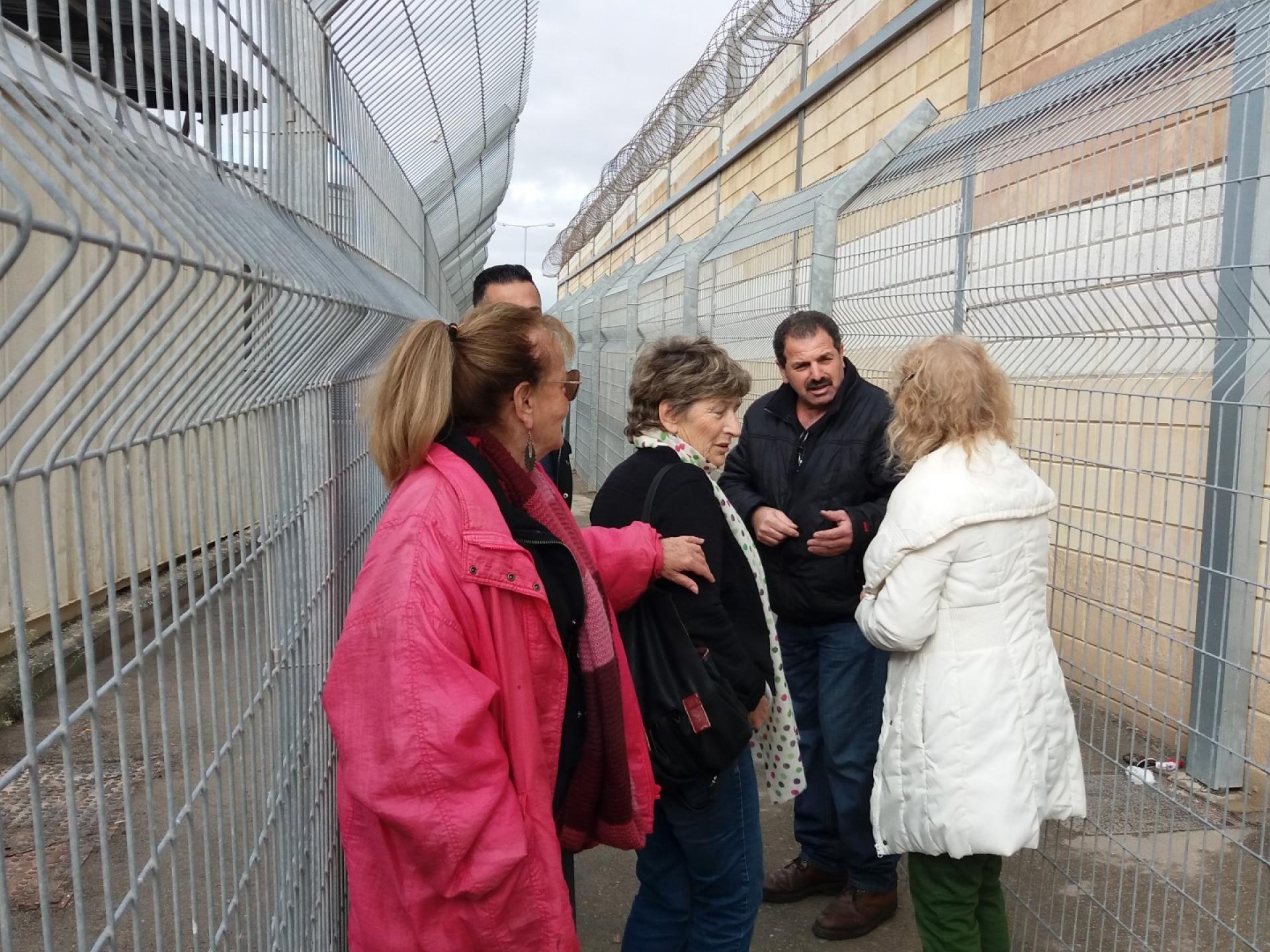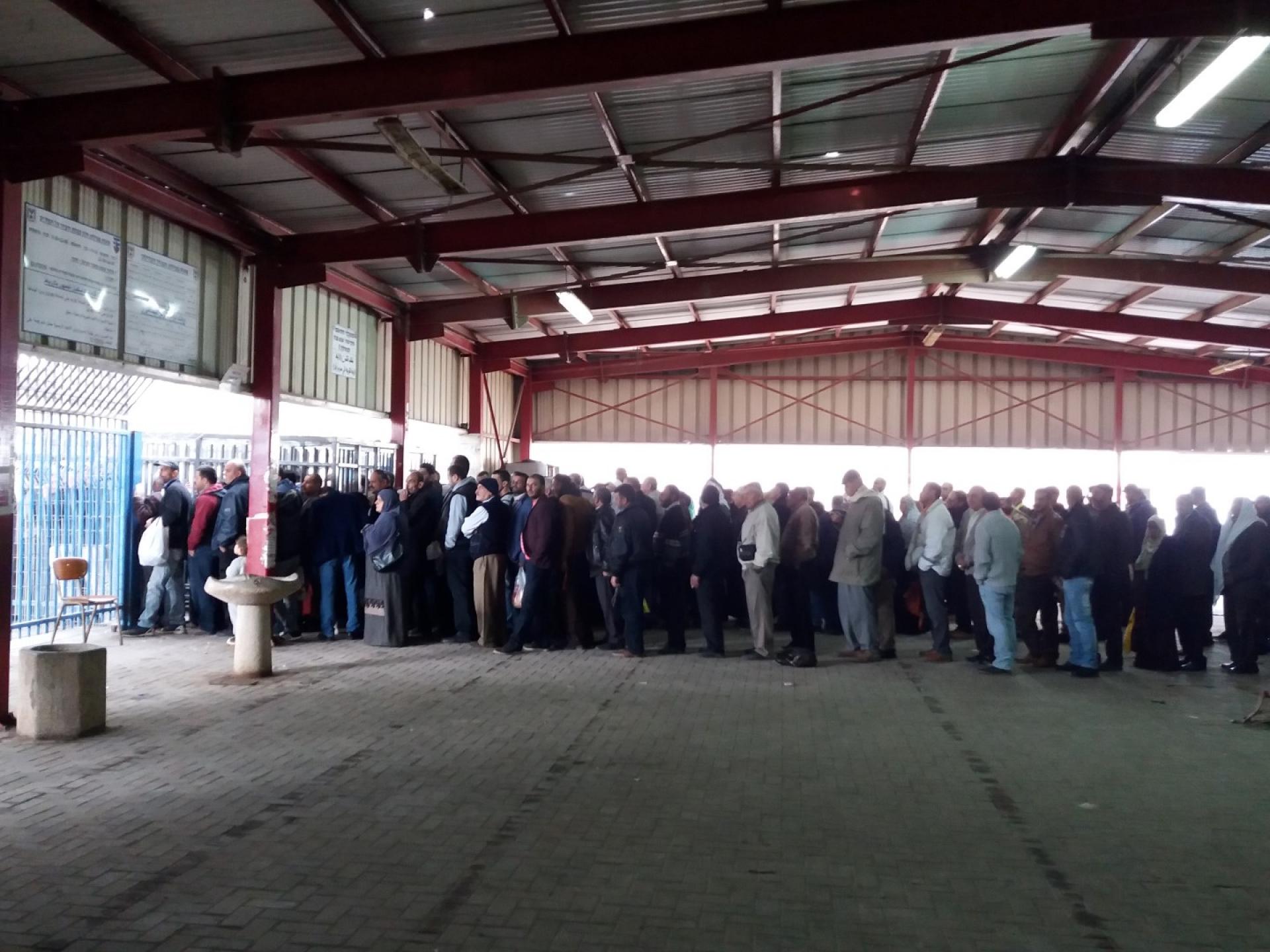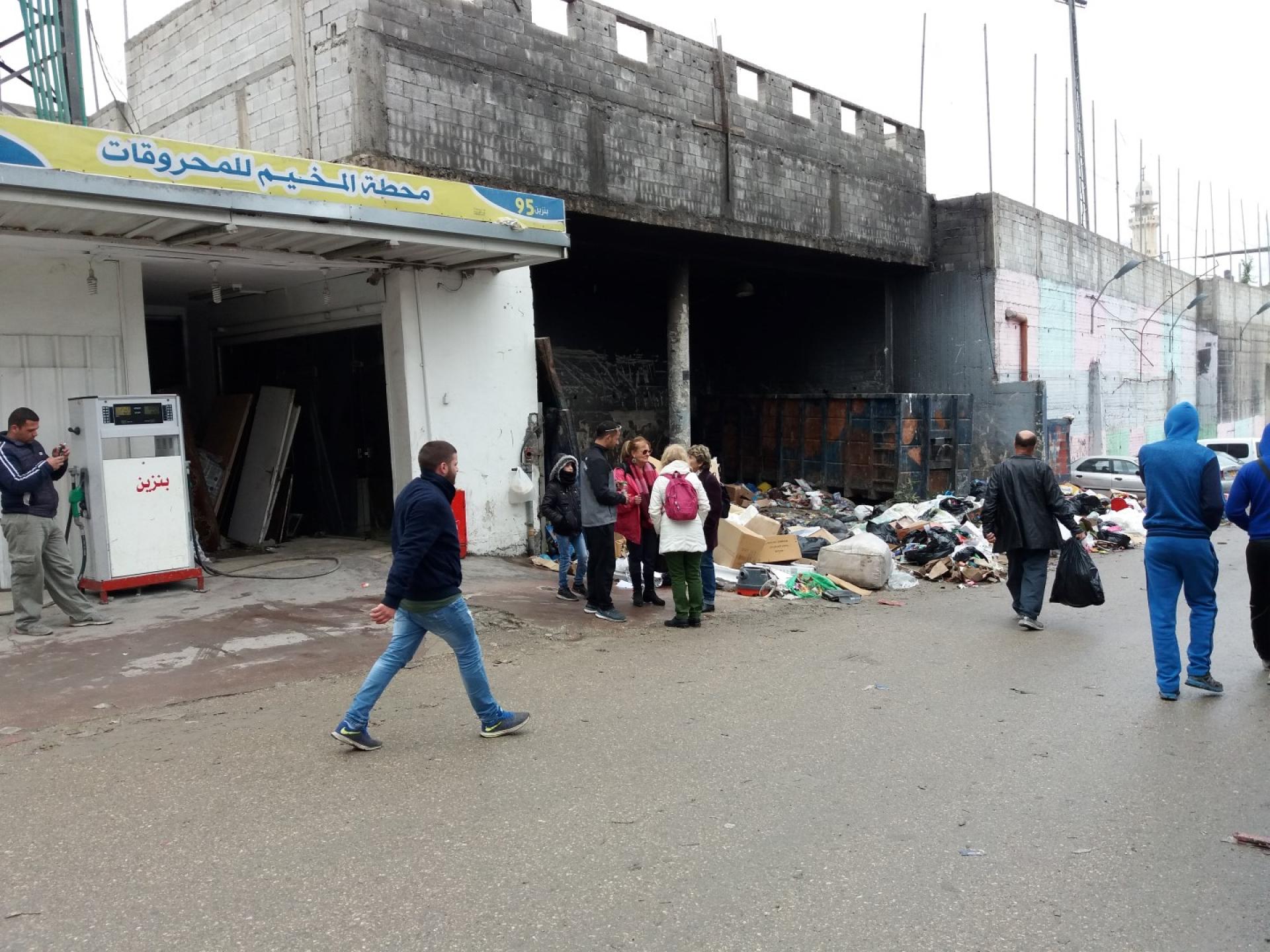'Anata-Shu'afat, Al Jib (Givat Zeev), Qalandiya

09:00 Jib – Never before have we seen such a long line. We try to cross to the other side, but two soldiers stop us and ask: "Who are you?" Of course, they won't let us pass. On our way back we meet some Palestinian men who smile at us. They stop to talk to us about the situation as if somehow accepting it, even though they can't see the purpose of it (and neither can we) and walk on.

09:30 Qalandiya – There seems to be no space left in the parking but our guest spots an empty place. People on their way to pray are waiting in a long line near the entrance. We go to check the line at the humanitarian gate. We ask the border policeman, Akram, if it is like this every Friday. He answers: "I've been here for 5 years and I've never seen a line like this."He explains that there is no DCO on Fridays, and that's why the humanitarian gate isn't working. Not an answer, really. Meanwhile one of the people waiting asks us about the closed gate. Every week he accompanies his 90 year old grandmother to the prayers. He finds a chair and she sits down to wait for the line to become shorter. "Every week it's like this", he says. We wonder how a 90- year old woman can cross at the checkpoint even if the line is shorter.

11:00 Shuafat refugee camp – Ronny, who is our guide today, explains about the place. All the 100.000 people living in the densely populated camp hold blue ID cards. We know from television reports that houses are being constructed without permits, that crime rates are high and that drug abuse is common, but once again we are faced with the harsh reality which is caused by the barriers.
Ronny takes us to an elementary school bordering on an endless garbage dump. Not far from the school there is a place where drugs are sold. "This is how the children grow up", she says.
Meanwhile, we need a toilet. The chilly weather also affects us. Ronny leads us to "Kupat Holim Clalit" while explaining that quite a large number of the patients at the clinic suffer from gunfire wounds. The clinic is closed. We continue to "Kupat Holim Meuhedet", maybe we'll be lucky. This clinic is also closed just like the UNWRA building further on. We reach a building in memory of the shaheeds (we don't try to enter). A driving teacher speaking fluent Hebrew offers us his help and leads us to a big surprise, a huge gym, and what a gym. R., the owner cordially tells us that they saved money from their construction work all over Israel to build this wonderful building with the purpose of preventing crime and drug abuse. 300 people have already subscribed at the price of 150 NIS. For young people weaned off drugs entrance is free. Our host tells us that crime and drug abuse have decreased and adds that for the last few months the police have been answering calls from the residents and arriving at the scenes of events.
At the exit, we get on a bus and our host asks the driver to take us to the checkpoint. When we arrive a female and a male soldier enter to perform the checking. The puzzled female soldier looks at us with wide open eyes. "I heard Hebrew and didn't understand who is on the bus." Having come to herself she asks for ID cards. The male soldier follows her with his weapon drawn, of course.
Our guest, Dov, is quite upset and has trouble finding words for what he has seen during the day. He will need some time to absorb his impressions. Meanwhile, he insists on inviting us to a meal, "at a Palestinian restaurant", he says.
